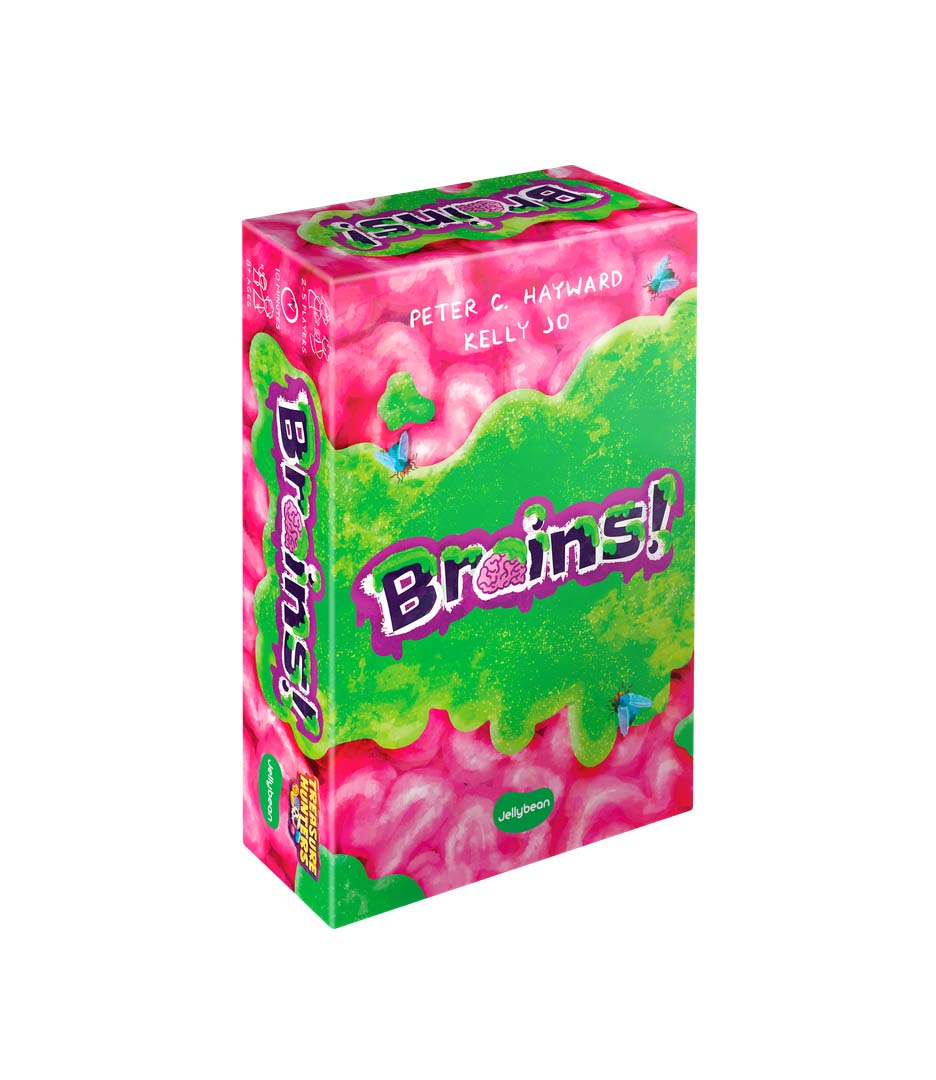Jelly Bean For Brains: The Sweet Science Behind Cognitive Boosting
Have you ever wondered if jelly beans could actually be good for your brain? Imagine this: you’re sitting at your desk, staring at a mountain of work, and all you have for fuel are some colorful, sugary jelly beans. Could they really help you focus, or is it just a sweet escape from reality? Jelly bean for brains might sound like a fun phrase, but there’s actually some fascinating science behind it.
Let’s dive into this sugary mystery and uncover the truth about how these tiny treats might be doing more than just satisfying your sweet tooth. Whether you're a student pulling an all-nighter or a professional looking for a quick brain boost, jelly beans might have a role to play. But hold up—before you go raiding the candy aisle, there’s more to this story than meets the eye.
In this article, we’ll explore the connection between jelly beans and brain function, backed by real science and expert insights. So, buckle up and get ready to discover the surprising ways these little gummies could be boosting your mental performance—or maybe not.
Read also:Is Peet Montzingo Gay Unpacking The Life Career And Speculations
Here's a quick roadmap of what we’ll cover:
- What Are Jelly Beans?
- Jelly Beans and the Brain Connection
- Benefits of Jelly Beans for Cognitive Function
- Risks and Downsides of Jelly Beans
- Jelly Beans in a Balanced Diet
- Popular Jelly Bean Brands
- The Science Behind Sugar and Brain Power
- Alternatives to Jelly Beans for Brain Health
- Conclusion: Are Jelly Beans Good for Your Brain?
- Frequently Asked Questions
What Are Jelly Beans?
Alright, let’s start with the basics. Jelly beans are those small, chewy candies coated with a hard sugar shell. They come in a rainbow of colors and flavors, from classic fruit flavors like strawberry and lemon to more adventurous ones like buttered popcorn and licorice. But what makes them so special? For starters, they’ve been around for over a century, with roots tracing back to the Turkish delight and Jordan almonds.
Jelly beans are not just about taste; they’re also about texture. That satisfying crunch followed by a soft chew is what keeps people coming back for more. But here’s the kicker—jelly beans aren’t just empty calories. They contain glucose, which is the brain’s primary source of energy. So, could this make them a brain-friendly snack? Let’s find out.
A Brief History of Jelly Beans
Jelly beans have a rich history that dates back to the 19th century. They were first introduced in the United States during the Civil War era and quickly became a staple in candy stores. The name "jelly bean" itself is thought to have been inspired by the phrase "bean feast," a popular term for a summer celebration in New England.
Over the years, jelly beans have evolved from simple, one-flavor candies to complex, gourmet treats. Today, you can find everything from sour jelly beans to ones infused with coffee or alcohol. But no matter how fancy they get, their core appeal remains the same: a burst of sweetness that’s hard to resist.
Jelly Beans and the Brain Connection
Now, let’s talk about the main event—jelly bean for brains. How exactly do these sugary treats affect our cognitive function? It all comes down to glucose, the simple sugar that fuels our brain cells. When we eat jelly beans, our body breaks down the sugar into glucose, which is then transported to the brain to keep it running smoothly.
Read also:Ashanti Dating History A Deep Dive Into Her Love Life
But here’s the catch—while glucose is essential for brain function, too much of it can be harmful. Consuming large amounts of sugar can lead to spikes and crashes in blood sugar levels, leaving you feeling sluggish and unfocused. So, while jelly beans might give you a quick boost, they’re not a sustainable source of brain power.
How Sugar Affects the Brain
Sugar has a complex relationship with the brain. On one hand, it provides the energy needed for cognitive tasks. On the other hand, excessive sugar consumption has been linked to cognitive decline and an increased risk of diseases like Alzheimer’s. The key is moderation. A small amount of sugar, like what you’d find in a few jelly beans, can help improve focus and memory, but overdoing it can have the opposite effect.
Benefits of Jelly Beans for Cognitive Function
So, what are the potential benefits of jelly beans for brain health? Here are a few:
- Quick Energy Boost: Jelly beans provide a fast source of glucose, which can help improve focus and alertness.
- Improved Memory: Some studies suggest that consuming small amounts of sugar can enhance memory performance.
- Mood Enhancement: The sweet taste of jelly beans can trigger the release of feel-good chemicals in the brain, improving mood and reducing stress.
But remember, these benefits are short-lived. For long-term brain health, it’s important to focus on a balanced diet rich in nutrients like omega-3 fatty acids, antioxidants, and vitamins.
Nutritional Content of Jelly Beans
Let’s break down the nutritional content of jelly beans:
- Calories: About 40 calories per 10 jelly beans
- Sugar: Approximately 9 grams per serving
- Fat: Virtually none
- Protein: Negligible
As you can see, jelly beans are mostly sugar, with very little nutritional value. While they can provide a quick energy boost, they shouldn’t be relied on as a primary source of brain fuel.
Risks and Downsides of Jelly Beans
While jelly beans might seem like a harmless treat, they do come with some risks. Here are a few things to keep in mind:
- Sugar Overload: Eating too many jelly beans can lead to a spike in blood sugar levels, followed by a crash that leaves you feeling tired and irritable.
- Weight Gain: Regular consumption of sugary snacks like jelly beans can contribute to weight gain and other health issues.
- Tooth Decay: The sticky texture of jelly beans can increase the risk of cavities and tooth decay.
It’s important to enjoy jelly beans in moderation and as part of a balanced diet. Pairing them with nutrient-rich foods can help mitigate some of these risks.
Moderation Is Key
The key to enjoying jelly beans without compromising your health is moderation. Limit yourself to a handful at a time and avoid making them a daily staple. Instead, treat them as an occasional indulgence to satisfy your sweet tooth without derailing your health goals.
Jelly Beans in a Balanced Diet
Incorporating jelly beans into a balanced diet requires some strategic planning. Here are a few tips:
- Pair with Protein: Eating jelly beans with a protein-rich snack like nuts or yogurt can help stabilize blood sugar levels.
- Choose Healthier Options: Look for jelly beans made with natural sweeteners or reduced sugar content.
- Watch Your Portions: Stick to small servings and be mindful of how many you’re consuming.
By being mindful of how and when you consume jelly beans, you can enjoy them without compromising your overall health.
Healthy Snack Alternatives
If you’re looking for brain-boosting snacks that are healthier than jelly beans, here are a few options:
- Fruit: Fresh or dried fruits like berries, bananas, and apples provide natural sugars and fiber.
- Nuts: Almonds, walnuts, and pistachios are rich in healthy fats and antioxidants.
- Dark Chocolate: Contains flavonoids that can improve cognitive function and mood.
Popular Jelly Bean Brands
When it comes to jelly beans, there are plenty of brands to choose from. Here are a few of the most popular:
- Jelly Belly: Known for their wide range of flavors and high-quality beans.
- Brach’s: A classic brand with affordable prices and classic flavors.
- Starburst: While not traditional jelly beans, their chewy texture and fruity flavors make them a popular choice.
No matter which brand you choose, always check the nutritional information and ingredient list to ensure you’re making a smart choice.
Comparison of Brands
Here’s a quick comparison of some popular jelly bean brands:
| Brand | Flavors | Price | Nutritional Value |
|---|---|---|---|
| Jelly Belly | 100+ flavors | $10-$15 per pound | High sugar content, low fat |
| Brach’s | Classic flavors | $5-$8 per pound | Lower quality, higher sugar |
| Starburst | Fewer flavors | $3-$6 per pack | More additives, less natural |
The Science Behind Sugar and Brain Power
The relationship between sugar and brain function is complex. While glucose is essential for brain health, excessive sugar consumption can have negative effects. Studies have shown that a diet high in sugar can lead to insulin resistance, inflammation, and oxidative stress—all of which can impair cognitive function.
On the flip side, small amounts of sugar can improve focus and memory by providing a quick energy boost. The key is finding the right balance and avoiding sugary snacks like jelly beans as your primary source of brain fuel.
Long-Term Effects of Sugar on the Brain
Over time, excessive sugar consumption can lead to cognitive decline and an increased risk of neurodegenerative diseases. It’s important to prioritize whole, nutrient-dense foods for long-term brain health. Incorporating fruits, vegetables, lean proteins, and healthy fats into your diet can help protect your brain and improve overall cognitive function.
Alternatives to Jelly Beans for Brain Health
If you’re looking for brain-boosting snacks that are healthier than jelly beans, here are a few options:
- Blueberries: Packed with antioxidants, these tiny fruits can improve memory and cognitive function.
- Nuts: Rich in healthy fats and vitamins, nuts are a great choice for boosting brain power.
- Dark Chocolate: Contains flavonoids that can enhance cognitive performance and mood.
These snacks not only provide a sweet treat but also offer numerous health benefits that jelly beans simply can’t match.
Brain-Boosting Nutrients
Here are some key nutrients to look for when choosing brain-boosting snacks:
- Omega-3 Fatty Acids: Found in fatty fish, flaxseeds, and walnuts, these fats are crucial for brain health.
- Antioxidants: Present in berries, dark chocolate, and green tea, antioxidants protect the brain from damage.
- Vitamins and Minerals: Foods rich in B vitamins, vitamin E, and magnesium support cognitive function.
Article Recommendations


